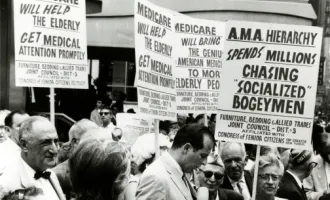Creating a Round Square at SFGH
San Francisco General Hospital record keeping remains fragmented
In my piece “Health Record Systems Affect Patient Care” (Feb. 27), I argued that the record keeping system at San Francisco General Hospital negatively affects both patient care and provider peace of mind.
The focus of the piece was to illustrate the challenges of trying to provide first-rate care from within a fragmented system, but I also suggested cost was the main factor that prevented the implementation of the electronic health record (EHR) already in use at UCSF. I have received some comments that my claim is overly simplistic if not offensive, and I feel this warrants a response.
I have been reminded that there are various stakeholders who influence decisions that can be made at the county hospital. For instance, the emergency department’s computer system was chosen to optimize patient flow; the intensive care unit’s system was designed for monitoring complicated patients in real-time while collecting research data.
In addition, there are numerous outpatient clinics, each with its own record-keeping needs, and there are community groups and politicians who would block the use of an EHR made by a company that holds certain views on controversial topics. To a certain extent, all of these factors and many more truly are important, and I can only imagine how emotionally draining it must be to try to make appropriate changes without sending at least one group into a frenzy.
Unfortunately, I feel that the people who sit on these committees are charged with the task of creating a round square, where they will spend months and years making their system a little more round before being told it’s just not square enough anymore, thus starting the process over again. Committees are put together to make tough decisions that often leave some stakeholders unsatisfied. It is my opinion that efforts to appease individual groups can lead to decisions that make little sense on the whole:
Boston Symphony Hall opened its doors in 1900. Amid the Greek style sculptures, the hand-riveted leather seats, the polished pipes of the organ, there would be a series of golden plaques lining the periphery of the magnificent stage. Each plaque would pay tribute to one of the world’s greatest composers, and the board of directors would decide which ones. After weeks of fighting, they came up with the only decision on which they could all agree. To this day, Ludwig van Beethoven’s name remains surrounded by eight empty plaques.
Like the various stakeholders at SFGH, I am sure the Symphony directors had their reasons. Perhaps they couldn’t include Wolfgang Amadeus Mozart and Joseph Hadyn if they didn’t include Johannes Brahms and Felix Mendelssohn. But was Mendelssohn really ever mature enough? Richard Wagner’s work was still relatively new, and this was not an opera hall, after all. As for Bach, well—it would be weird to have just two.
If the committee members at SFGH needed to design a patient care system from scratch, all this back and forth among stakeholders would be more acceptable. Given that a fairly efficient system is already in use at other UCSF hospitals, what good reasons could we give not to use that system even if it was not perfect? If SFGH could make a switch to Epic/APEX for free, would they do it? I hope so, but if not, what good reasons should stop them?


